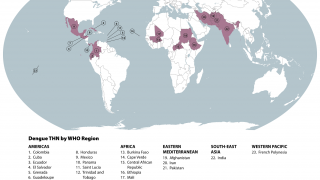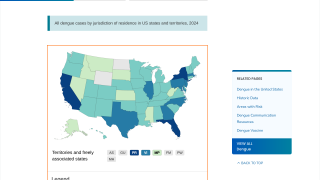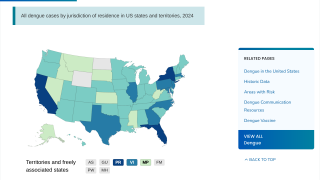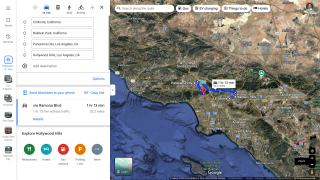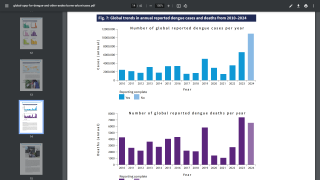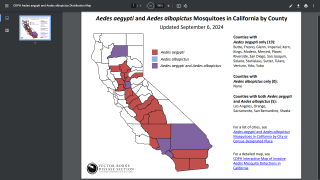Dengue Fever Outbreaks Reported in Africa & Middle East

A new Travel Alert has been issued for dengue fever outbreaks in various African and Middle Eastern countries.
The US Centers for Disease Control and Prevention (CDC) issued a Level 1 Travel Alert on September 13, 2019, which said ‘Dengue is an ongoing risk in many parts of Africa and the Middle East, and travelers visiting these countries may be at increased risk.’
Specifically, Côte d’Ivoire and Réunion are reporting higher-than-usual numbers of dengue cases during 2019.
This is important news since the CDC has confirmed 408 dengue fever cases in the USA as of September 4, 2019. The states of California (69) and Florida (122) have reported 46 percent of the dengue cases during 2019.
Moreover, the majority of these dengue cases are people who returned to the USA after international travel.
Dengue viruses are spread to people through the bite of an infected Aedes species (Ae. aegypti or Ae. albopictus) mosquito. These mosquitoes also transmit chikungunya, yellow fever, and Zika infections.
Dengue fever is caused by a virus that has 4 different but closely-related serotypes. Dengue Serotype 2 is one of the deadliest and is the serotype currently affecting children and adolescents, says the CDC.
Health effects from dengue include fever, headache, nausea, vomiting, rash, muscle and joint pain, and minor bleeding.
Dengue fever can become severe within a few hours.
Severe dengue is a medical emergency requiring immediate medical attention and usually requiring hospitalization. In severe cases, health effects can include hemorrhage, shock, organ failure, and death, says the CDC.
Furthermore, the CDC said ‘travelers to areas of risk should protect themselves by preventing mosquito bites by using an EPA-registered insect repellent, wearing long-sleeved shirts and long pants when outdoors, and sleeping in an air-conditioned room or room with window screens or under an insecticide-treated bed net.’
To assist healthcare providers in better diagnosing dengue fever, the CDC published a report on June 14, 2019, that summarizes existing and new guidance on dengue diagnostic testing.
A blood test is the only way to confirm a dengue diagnosis.
>> Order confidential blood tests <<
There is a CDC approved preventive vaccine available for the dengue virus.
On May 1, 2019, Dengvaxia became the first vaccine approved in the USA for the prevention of dengue disease in people ages 9 through 16 who have laboratory-confirmed previous dengue infection and live in endemic areas caused by all dengue virus serotypes.
The CDC says before being vaccinated with Dengvaxia, inform your healthcare provider if you have dengue symptoms or live in or have recently traveled to an area with risk of dengue.
Pre-travel vaccination counseling sessions can be scheduled at local pharmacies by Vax-Before-Travel.
Note: The CDC says any vaccine can cause side effects, which should be reported to a healthcare provider.
Dengue fever news published by Vax Before Travel
Our Trust Standards: Medical Advisory Committee

